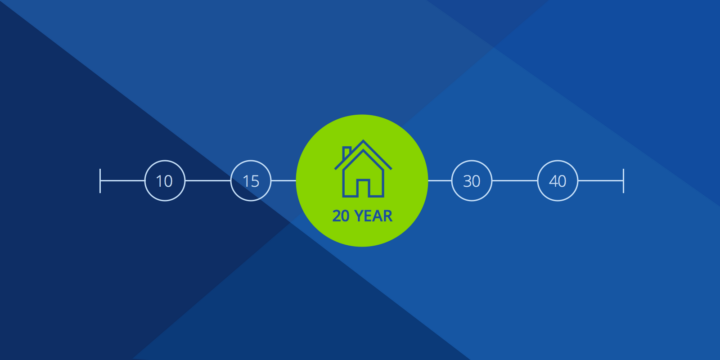Buying a House as an Unmarried Couple? Here's What to Consider


Written by Alycia Lucio on October 30, 2024
With the cost of living on the rise, buying a house as an unmarried couple is more common than most people think. Most buyers (63%) purchase and share ownership of their home with at least one other person, according to a 2024 Zillow survey. Buyers who are single and never married are most likely to cobuy with a friend or relative (24%).
In other words, your marital status doesn’t make or break your ability to qualify for a home loan, especially since lenders typically allow up to four people to apply for a mortgage.
Buying a home with a partner isn’t much different than buying one as a married couple, except that the purchase doesn’t automatically generate marital assets protected by some state laws. Here are some important things to consider before buying a house as an unmarried couple.
1. The health of your finances
If you plan on buying a house with your partner, you’ll first want to have a serious discussion about your finances. The goal is to ensure you’re both ready to take on the financial responsibility of buying and owning a home.
When applying for a mortgage, lenders will look at the credit score and history, debt-to-income ratio (DTI), and income and employment history of whoever is on the application. These financial factors, in addition to your down payment amount, will determine your ability to get a mortgage and the terms and interest rate of that mortgage.
2. How you’ll split costs
While splitting everything 50/50 may seem like the obvious way to go, it’s not always that simple. Incomes typically vary, as do other personal and communal expenses and future plans. So, in addition to determining how much you can afford house-wise, you’ll also need to discuss how you and your partner will split the upfront and ongoing costs of homeownership.
3. Who will be on the mortgage application?
Just like married couples, unmarried couples must decide whether they want to apply for a mortgage with a single name or jointly, with both names on the mortgage.
Single application
If only one partner applies for the mortgage, only their name will be on the loan. They’ll have sole responsibility for ensuring the monthly payments are made consistently and on time, even if splitting the cost of a mortgage 50/50 with their partner. The lender will only assess the financial qualifications of the applicant, such as their credit score, income history, and DTI. Single mortgage applications can be a good idea if one of you has a stronger financial profile than the other, and has the income to qualify on their own.
Joint application
If you and your partner plan to apply as co-borrowers on a mortgage, you’ll both be responsible for repaying the loan. The lender will also consider both of your financial information during the underwriting process, which may qualify you for better terms if both you and your partner have strong financial profiles. Conversely, if one partner has a low credit score, a high DTI ratio, or less than two years of work history, it could hurt your chances of getting the terms and rates you want.
4. Who will hold the home’s title?
A home’s title dictates legal ownership of the property. While the laws for property titles and shared properties vary by state, you’ll typically have three options to choose from when deciding on who will legally own the home you and your partner intend to buy together:
Sole ownership
A sole ownership title means only one person is the home's legal owner. With a sole ownership structure, only the person whose name is on the title will have legal rights to the property, regardless of whose name is on the mortgage or making the monthly payments.
Joint tenancy
Under a joint tenancy title, each partner gets an equal share of the property rights. Neither partner can sell or rent the property without the other’s permission. It also means that if one partner passes away, the surviving partner automatically inherits their share of the home, becoming the full legal owner.
Tenancy in common
A tenancy in common title allows you to divide up the ownership shares of the home however you want. Unlike joint tenancy, tenancy in common allows each partner to sell their share of the property without permission. If one partner passes, their share of the home will also automatically go to an heir — not the surviving partner — unless specified otherwise in the estate plan.
5. Hiring a real estate attorney
A real estate attorney can help you and your partner draft the most logical legal arrangements regarding homeownership as an unmarried couple. They’ll guide you through your options for tenancy and estate planning in your state and offer personalized advice to help you determine what will best protect you and your partners’ interests.
If you choose to work with a real estate agent, they may be able to help you draft a coherent cohabitation agreement. Also known as a property agreement, a cohabitation agreement is a legal contract between you and your partner that details the division of the property and other assets. While optional, this document protects the interests of unmarried homeowners by clearly outlining:
- The buyout terms in the event of a breakup
- The exit strategy, if one or both partners decide they want to sell the home
- The sharing of housing expenses
- The resolution process for any homeownership disputes
Remember, a cohabitation agreement is a legal document. It may be wise to consult an attorney before finalizing and entering into one. If you and your partner create one, you’ll want to revisit and amend the terms after significant life changes, such as having children.
6. A plan for worst-case scenarios
Unlike buying a house as a married couple, buying a house as an unmarried couple doesn’t come with automatic legal protection. When you buy a house as a married couple, or if you tie the knot later on, the home typically becomes marital property. Marital property is handled differently during a divorce, depending on which state you live in. The outcome of homeownership for an unmarried couple who decides to split can be more complicated, as it depends on the legal agreement you draw up with your partner before buying the home — if you draw one up.
Breakups aside, you’ll also want to lay out a plan for what happens if your partner passes unexpectedly. If the house is in your partner’s name under sole tenancy, and there is no will or trust naming you as the beneficiary of the home, it may be subject to your state’s succession laws.
Buying a house as an unmarried couple isn’t as complicated as it may seem, but there are certain factors to plan for and consider. If you’re deciding between a single or joint mortgage, see what you and your partner pre-qualify for with us at Zillow Home Loans*.
*An equal housing lender. NMLS #10287
How much home can you afford?
At Zillow Home Loans, we can pre-qualify you in as little as 5 minutes, with no impact to your credit score.
Zillow Home Loans, NMLS # 10287. Equal Housing Lender
Get pre-qualifiedHow much home can you afford?
See what's in reach with low down payment options, no hidden fees and step-by-step guidance from us at
Zillow Home Loans.
Zillow Home Loans, NMLS # 10287. Equal Housing Lender
Calculate your BuyAbility℠
Related Articles
Get a mortgage with Zillow Home Loans
Go from dreaming to owning with low down payment options, competitive rates and no hidden fees. A dedicated loan officer will guide you until you have your keys in hand.

Zillow Home Loans, NMLS #10287. Equal Housing Lender.



